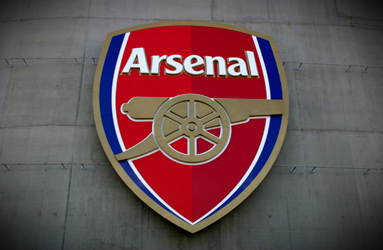We’ve all heard the tired, recycled rebuttals from Spurs fans and sometimes other rival supporters alike. We’re a franchise club. Of course, that is defined as a club that abandons its historical principles and its home community to make a new home for itself in search of more economically opulent enterprises. It’s something you’re used to as a Gooner, and something that once you’ve heard it one hundred times doesn’t bother you at all. A bit like hearing “We’ve got more English players than you”, or perhaps (and yes, I’ve actually heard this before) Arsenal copy everything Spurs do”. Yeah Ok…
But once you start to dissect what it actually means to be a “franchise”, you start to realise that it is an accusation that could be levelled at many clubs. Of course MK Dons will receive the brunt of this, having inherited a lot of goodwill when they were able to take Wimbledon’s place in the Football League. A “franchise” is deemed to be a soulless, vacuous company designed to leech onto a market, then move on when the supply is run dry, at least, that is what I gather it means when I hear it spewed from your average Tottenham fan. Then again, to them being a big club means having numerous successes in the “Norwich Hospital Charity Cup”, so we’ll have to take that with a pinch of salt.
We were formed by workers in the munitions factory in Woolwich one December day in 1886. Despite doing a little jump across the Thames and dropping “Woolwich” from our name, we still carry much of the identity of our old, historic club. The name “Arsenal” is synonymous with London, for me it is the most unique name in English Football.
But if we cast our minds back to other English clubs from years gone by, history tells us of “Newton Heath”, and “Thames Ironworks”, clubs which relocated within their current conurbations and assumed new identities, being Manchester United and West Ham respectively. Across London “Millwall Rovers” moved from the Isle of Dogs down to South London, looking for a more virtuous existence. Another club in Manchester once went by the name of “St Marks” (based in West Gorton), before becoming Ardwick AFC (in, you guessed it, Ardwick) before finally settling on Manchester City and making the moves to Maine Road in Moss Side and later to Eastlands. These could be considered similar changes of identity, why no accusations of franchising? Even Leyton Orient once dropped “Leyton” from their name when Leyton was absorbed into the London Borough of Waltham Forest.
What's funny is when it comes to a nomadic existence, we're superbly outdone by QPR. If you ever find yourself near a large green expanse in West London, you're most probably standing on a former Queens Park Rangers football pitch. Just take a look at the number of places they've called home, moving around like a travelling circus. The moves haven't stopped yet, with plans to move to Old Oak Common being planned. Would keeping our name "Woolwich Arsenal" for all these years despite playing some 11 miles northwest in Islington mean we might have escaped being labelled a "franchise"? It's certainly something several other clubs have been lucky to escape. But then again it's easy to forget just how much opposition there was to our move in 1913. Of course our shadow dwelling neighbours had a right to p*ssed off, as I suppose did Orient, and even West Ham who made their objections clear. Even those cheeky upstarts in Fulham, who go by the name of Chelsea had the audacity to whinge, despite being just eight years old and enjoying relatively large crowds at the time at the other end of London. To put it simply, our early years were struggle after struggle, just to survive. If you think our problems eased off when the move did go ahead you'd be well wide of the mark.
How much of an affinity do we as modern fans need to feel towards our club's early years? Would modern day Tottenham fans feel a shared identity between themselves and the grammar-school boys from the Bible class at All Hallows Church, who established their club? Has Millwall's identity really changed since leaving Dockland territory and becoming a South London club? I don't think so, and I don't think it really matters. Woolwich Arsenal were there for the community they represented when they played at the Manor Ground, they didn't needlessly turn their back. Not any more than Thames Ironworks, Newton Heath or Millwall Rovers.
These are clubs with colourful histories, what makes our club so fascinating is the trials and tribulations that took place in Woolwich in our formative years, the unyielding leadership of Henry Norris and the exciting, trend setting years of Chapman. In these years we changed name three times, adopted white sleeves and shirt numbers, renamed our local tube station and moved to Highbury. These were the most important years in our club’s history, and surely it is and forever will be our history. The re-development of the Holloway area that Arsenal have been responsible for, the businesses that have thrived on the Holloway Road and the fact that we did our upmost to stay in Islington when we left Highbury suggests we have made ourselves hugely important to North London. No franchise can lay claim to such a deep rooted connection to the community as we can.










